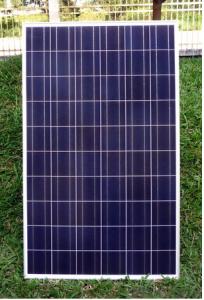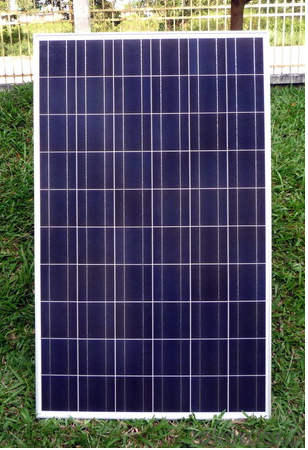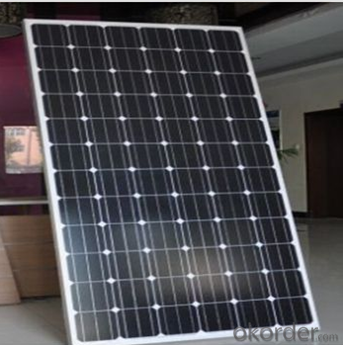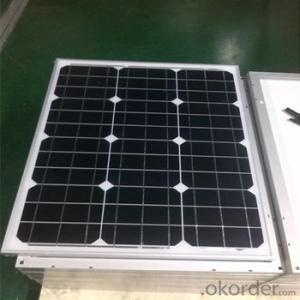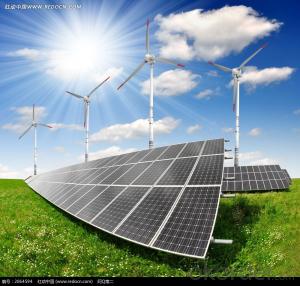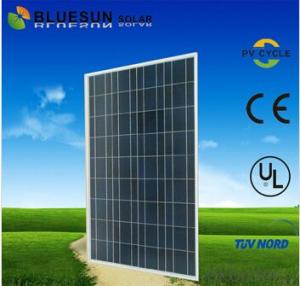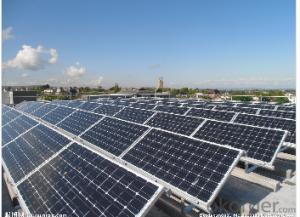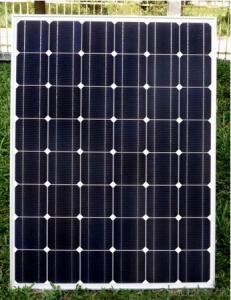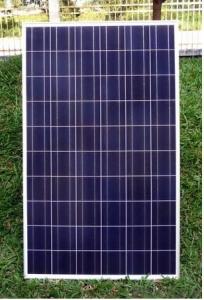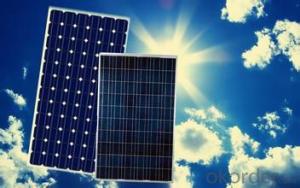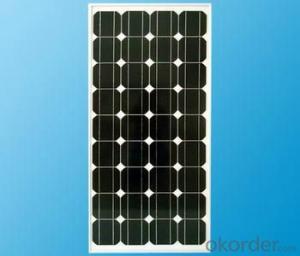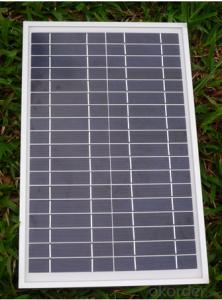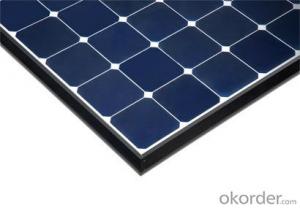Commercial Solar Panels:Mono Solar Panel 20W A Grade with Cheapest Price
- Loading Port:
- Tianjin
- Payment Terms:
- TT OR LC
- Min Order Qty:
- 1000 watt
- Supply Capability:
- 1000 watt/month
OKorder Service Pledge
OKorder Financial Service
You Might Also Like
Specification
Mono Solar Panel 20W A Grade with Cheapest Price
product description
A solar cell, or photovoltaic cell (in very early days also termed "solar battery"[1] – a denotation which nowadays has a totally different meaning, see here), is an electrical device that converts the energy of lightdirectly into electricity by the photovoltaic effect, which is a physical and chemical phenomenon.
Solar cells are described as being photovoltaic irrespective of whether the source is sunlight or an artificial light. They are used as a photodetector (for example infrared detectors), detecting light or other electromagnetic radiation near the visible range, or measuring light intensity.
In contrast, a solar thermal collector supplies heat by absorbing sunlight, for the purpose of either direct heating or indirect electrical power generation from heat. A "photoelectrolytic cell" (photoelectrochemical cell), on the other hand, refers either to a type of photovoltaic cell (like that developed by Edmond Becquerel and modern dye-sensitized solar cells), or to a device that splits water directly into hydrogen and oxygen using only solar illumination.
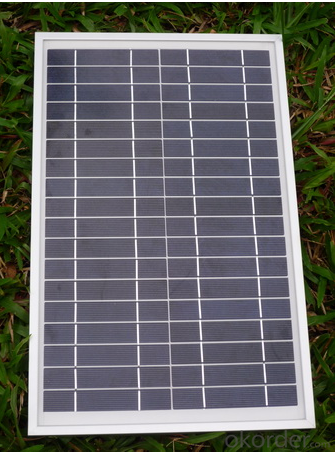
Feature
The modules use high-quality imported polycrystalline or Polycrystalline solar panel;
Enclosed by high-rigidity tempered glass, with excellent light transmittance and output performance;
Surface treated with reflection-reducing process, increasing the light absorption.
Back sealed with anti-aging EVA, resistant from moisture and corrosion.
The efficiency of our Polycrystalline solar cell is over 17%, and polycrystalline panel is over 16%. We stipulate, the allowance of each panel’s rated power has to be positive. Each panel is strictly tested before leaving the factory.
Our solar panel is designed with a lifetime of 25 years, and guaranteed that the power decline less than 10% within 10 years, and 20% within 20 years.
Packaging
28pcs into one box 48pcs into one pallet.
Delivery
20 days after received full payment
Payment term
LC&TT
- Q: Are solar panels easy to maintain?
- Yes, solar panels are generally easy to maintain. They have no moving parts and require minimal upkeep. Occasional cleaning to remove dust and debris is recommended, and regular inspections to ensure proper functioning are necessary. However, overall, the maintenance requirements for solar panels are quite low compared to other energy systems.
- Q: Can solar panels be installed on sports stadiums or arenas?
- Yes, solar panels can be installed on sports stadiums or arenas. In fact, many stadiums and arenas around the world have already installed solar panels to harness clean and renewable energy. These panels can be mounted on the roof or other suitable areas of the facility, helping to offset energy consumption and reduce carbon emissions. Additionally, the large surface area of stadiums and arenas provides ample space for solar panel installation, making them ideal candidates for utilizing solar energy.
- Q: Can solar panels be integrated into windows?
- Yes, solar panels can indeed be integrated into windows. These specialized solar panels are called solar windows or photovoltaic windows. They are designed to function as both windows and solar panels, allowing them to generate electricity while still maintaining their transparency for natural light to pass through.
- Q: Can solar panels be used in areas with high levels of shade?
- Solar panels can still be used in areas with high levels of shade, but their efficiency may be significantly reduced. The shade from trees, buildings, or other obstructions can block sunlight from reaching the panels, limiting their ability to generate electricity. However, there are advanced technologies and strategies available, such as microinverters or optimizers, that can help mitigate the impact of shade and improve panel performance in shaded conditions.
- Q: Photo-Voltaic solar panels are very expensive. Most of a home's energy needs are for heating water, heating and air-conditioning. All of these can be met with thermal solar collectors which are much less expensive. The thermal solar panels would heat water stored in a hot water tank which then can be used as hot water, to heat the home, or as the heat source to a Lithium Bromide Absorption chiller to air-condition a home. With the base line needs met without expensive panels and without inefficient energy conversions, only a small Photo-Voltaic array would be needed for the remaining power needs and since those needs are variable, there would still be power to sell to the grid.
- That sounds good to me. I'm all for any kind of new energy as long as it's renewable and doesn't pollute the environment. I'm even a fan of solar water heating.
- Q: Can solar panels be installed on a remote island or location?
- Yes, solar panels can be installed on a remote island or location. Solar panels are a flexible and sustainable energy solution that can function independently of the grid, making them suitable for remote areas. They can generate electricity by harnessing sunlight, which is abundant in most locations, including islands. Additionally, advancements in solar technology have made it possible to install panels in challenging environments, such as extreme temperatures or harsh weather conditions.
- Q: How do solar panels affect the insurance premiums of a home?
- Solar panels can have a positive impact on the home insurance premiums. While the installation of solar panels may increase the overall value of a home, it can also lower insurance premiums due to the reduced risk of fire damage and environmental factors associated with renewable energy. However, the actual effect on insurance premiums may vary depending on the insurance provider and specific policy terms.
- Q: How hard is it to install solar energy panels on your house? Is this a reasonable way to produce 00% of your house's energy? Is there any danger?
- It okorder /
- Q: Okay, me and my friends are going to fix up an old trailer that's out in the woods, we want something to be able to run small electric appliances off of, but it's to far to run power to. How can we make a good but cheap homemade solar panel that we could plug things into? The trailer is in more of a field so it gets plenty of sunlight! Thanks for any help! :)
- Solar panel cannot be home made with household material. It was a high tech product. You need to buy them in market. To suppose electricity for a trailer home, solar system becomes very expensive . A t least few thousands dollar to buy solar panels, storage battery bank, DC to AC inverter, heavy gauge wiring and hardware.
Send your message to us
Commercial Solar Panels:Mono Solar Panel 20W A Grade with Cheapest Price
- Loading Port:
- Tianjin
- Payment Terms:
- TT OR LC
- Min Order Qty:
- 1000 watt
- Supply Capability:
- 1000 watt/month
OKorder Service Pledge
OKorder Financial Service
Similar products
Hot products
Hot Searches
Related keywords
